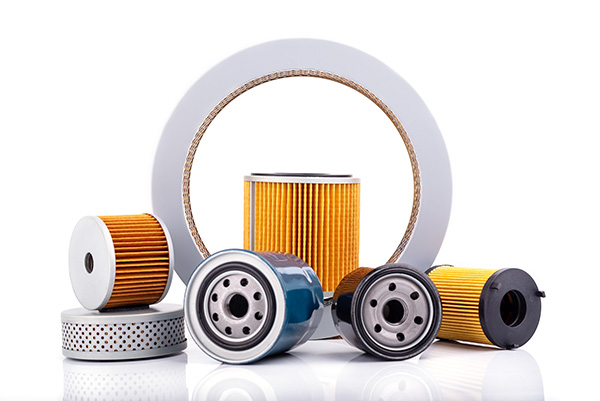
Your car relies on various fluids to keep its essential systems running smoothly. Did you know that there are filters in place to ensure these fluids stay clean and free of contaminants?
Engine Oil Filter
The engine oil filter plays a vital role in maintaining the health of your engine. As engine oil circulates through the engine, it picks up dirt, debris, and other contaminants that can cause premature wear and damage. The oil filter traps these impurities, preventing them from circulating further and potentially causing harm to engine components.
Over time, however, the oil filter can become clogged with debris, reducing its effectiveness. Regularly changing the oil filter, typically during oil changes, helps ensure clean oil circulation and optimal engine performance.
Fuel Filter
The fuel filter acts as a barrier between your car's fuel tank and the engine, removing dirt, rust, and other contaminants from the fuel before it reaches the engine. A clean fuel filter is essential for maintaining proper fuel flow and preventing fuel system issues such as clogs and injector damage.
It's recommended to replace the fuel filter according to your vehicle manufacturer's guidelines or as part of regular maintenance to ensure efficient fuel delivery and prevent engine damage.
Transmission Fluid Filter
The transmission fluid filter removes dirt, metal particles, and other contaminants from the transmission fluid, ensuring smooth gear shifts and prolonging the transmission's life. Like the engine oil filter, the transmission fluid filter can become clogged over time, reducing its ability to filter out contaminants effectively.
Regularly changing the transmission fluid filter, along with the transmission fluid itself, is essential for maintaining transmission performance and preventing costly repairs. Check your vehicle's owner's manual for recommended intervals for changing the transmission fluid and filter, as they can vary depending on driving conditions and vehicle usage.
Signs of a Clogged Fluid Filter
Decreased Performance
A clogged fluid filter can restrict the flow of fluids, such as engine oil, fuel, or transmission fluid, leading to decreased performance. You may notice sluggish acceleration, reduced power output, or difficulty maintaining speed, especially when driving uphill or under heavy load. If your car feels like it's struggling to perform as usual, it could be a sign of a clogged fluid filter.
Engine Misfires
In the case of a clogged fuel filter, inadequate fuel flow to the engine can result in engine misfires or hesitation during acceleration. Misfires occur when the engine fails to ignite fuel properly, causing sputtering or jerking motions. If you experience sudden jolts or hesitation while accelerating, it's worth checking the fuel filter for potential clogs.
Strange Engine Noises
A clogged fluid filter can disrupt the smooth operation of your vehicle's engine or fuel system, leading to unusual noises. You may hear knocking, pinging, or rattling sounds coming from the engine bay, especially during acceleration or when idling. These noises can indicate that the engine is not receiving an adequate supply of clean fluid, potentially causing damage if left unaddressed.
Difficulty Starting the Engine
A clogged fuel filter can impede the flow of fuel to the engine, making it difficult to start, especially after the car has been sitting for an extended period. If you experience difficulty starting the engine or if it takes several attempts before the engine turns over, it could be a sign of a clogged fuel filter.
Fluid filters and everything else your car might need to function properly. That's what the team at Taylormade Automotive has to offer - Just give us a call, and we will be happy to help